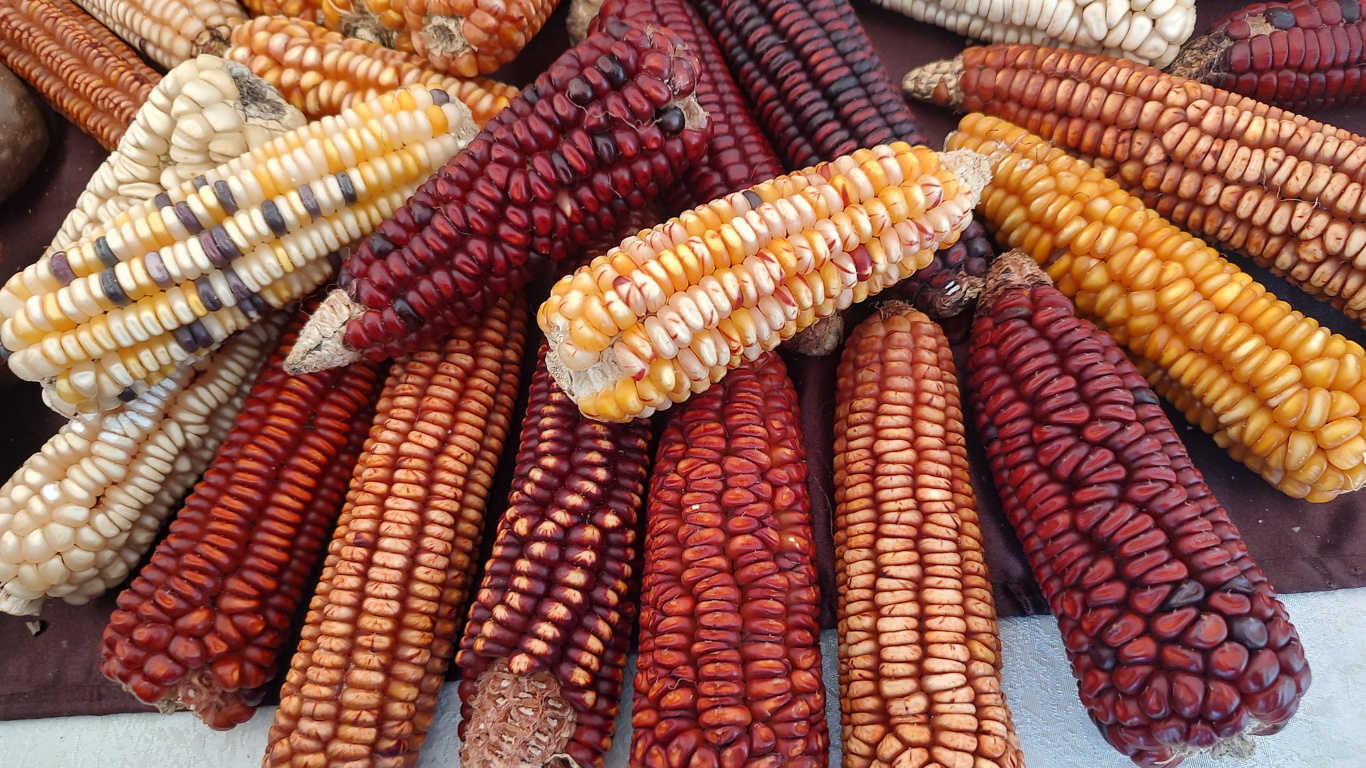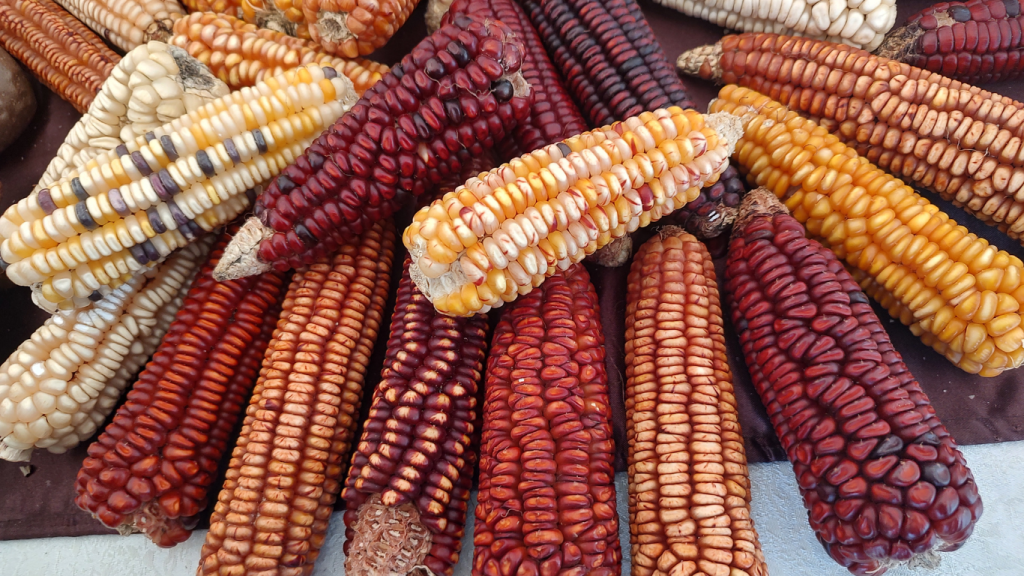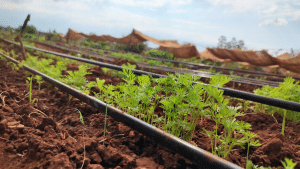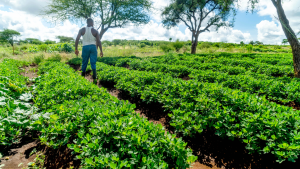
In a world grappling with the dual challenges of population growth and environmental sustainability, food security remains a critical concern. The quest to feed a projected global population of 9.7 billion by 2050 poses significant challenges, especially in the context of climate change and diminishing natural resources. The concept of food security involves ensuring that all people have access to enough nutritious food to lead healthy lives, not just today but also in the future. Amidst these pressing issues, organic farming emerges as a sustainable solution that aligns with environmental, economic, and social goals. It proposes a model of agriculture that is not only sustainable but also capable of supporting our planet’s food needs.
Organic farming is not just a method of agriculture; it’s a commitment to the Earth’s health and the well-being of future generations. By relying on ecological processes, biodiversity, and cycles adapted to local conditions, organic farming eschews the use of synthetic pesticides and fertilisers, genetically modified organisms, and growth hormones. This approach is fundamentally aligned with nature’s means of producing food, ensuring a balanced ecosystem and a sustainable food supply.
The relevance of organic farming to food security is multifaceted. It enhances food sovereignty by reducing dependency on agrochemical inputs; it supports biodiversity which is crucial for resilient crop production; and it improves soil health, thereby increasing land productivity sustainably. As we delve deeper into the mechanics and benefits of organic farming, it becomes evident that it holds the keys to not only sustaining but also significantly enhancing our global food security.
Principles of Organic Farming
Organic farming stands as a pillar for promoting ecological balance and enhancing soil fertility without relying on synthetic inputs. It integrates traditions, innovation, and science to benefit the shared environment, promoting fair relationships and a good quality of life for all involved. Here, we explore the core principles that make organic agriculture a sustainable choice, not just environmentally, but as a crucial factor in long-term food security.
Emphasis on Biodiversity
Organic farming systems emphasise biodiversity, understanding that a diverse agricultural environment is more resilient against disease and adverse weather. This principle extends beyond just the crops; it includes the natural flora and fauna that contribute to a balanced ecosystem. Diverse systems mimic natural ecosystems and inherently reduce the need for chemical inputs such as herbicides and pesticides, which are often a staple in conventional farming methods.
Natural Soil Management
Soil is more than just a medium for plant growth in organic farming—it’s a living ecosystem within itself. Organic farmers focus intensely on maintaining and improving soil structure and fertility. Practices such as crop rotation, green manure, compost, and reduced tillage help maintain healthy soil biota, which in turn supports plant nutrition and improves resilience to erosion and drought. This approach ensures that the soil remains fertile and productive for future generations, a key component in sustainable food systems.
Instead of relying on synthetic pesticides, organic farming employs a variety of natural methods to control pests and diseases. These include biological control, using beneficial insects that prey on harmful pests, and developing plant varieties with greater resistance to diseases. By managing pests and diseases in a more natural way, organic farms help prevent the buildup of chemical residues in food products, contributing to healthier, safer food supplies.
Resource Management
Water management is another critical aspect where organic farming demonstrates its commitment to sustainability. Techniques like rainwater harvesting, drip irrigation, and mulching are commonly employed to optimize water usage. These practices not only conserve water but also reduce runoff and the leaching of nutrients, minimizing the environmental impact of farming.
Energy Conservation
Organic farms often operate on lower energy requirements compared to conventional farms, primarily because they use less energy-intensive inputs and focus more on manual, labour-intensive methods. This reduced dependency on fossil fuels is crucial for reducing agriculture’s carbon footprint, aligning with global efforts to combat climate change.
These principles of organic farming not only contribute to environmental health but also bolster the resilience and security of food systems. By enhancing the sustainability of agricultural practices, organic farming plays a critical role in ensuring that future generations have access to sufficient, safe, and nutritious food.
Comparative Analysis of Organic vs. Conventional Farming
Understanding the differences between organic and conventional farming is essential to comprehending why organic methods are increasingly viewed as critical to achieving long-term food security.
Nutrient Levels in Food
Studies have shown that organically grown foods often contain higher levels of certain nutrients, including antioxidants and vitamins. For instance, organic produce tends to have higher concentrations of Vitamin C, iron, magnesium, and phosphorus. These nutrients are crucial for human health, contributing to a stronger immune system, better skin health, and overall enhanced wellbeing. The absence of synthetic chemicals in organic farming not only makes the food safer but potentially more nutritious.
Impact on Soil Health
Organic farming practices are designed to maintain soil fertility and structure, promoting a healthy growing environment for plants. Conventional farming, which often relies heavily on chemical fertilisers, can degrade soil health over time, leading to a decline in soil biodiversity and productivity. Organic methods, such as crop rotations, intercropping, and the use of organic compost, help build organic soil matter and encourage a thriving ecosystem below the ground. Healthy soils are better at storing water and nutrients, which is essential for crops during periods of drought.
Water Usage and Pollution Control
Organic farming typically requires less water than conventional methods, as organic soils retain moisture more efficiently due to the higher organic matter content. This aspect is particularly critical in areas prone to drought. Furthermore, organic farming reduces water pollution, as it prohibits the use of synthetic pesticides and fertilisers that are common contributors to water contamination. By preventing these pollutants from entering water systems, organic farming supports healthier aquatic ecosystems and cleaner drinking water supplies.
Economic and Social Implications
While organic farming generally involves higher initial costs and more labour than conventional farming, it also yields numerous economic benefits. These include lower input costs over time as farmers use less synthetic fertilisers and pesticides. Additionally, organic farming can enhance social dynamics in rural areas by providing more employment opportunities and supporting local economies through small-scale operations and local markets.
Through this comparative analysis, it is evident that organic farming offers substantial advantages over conventional farming in terms of environmental impact, resource use, and potential health benefits. These factors collectively contribute to its role in enhancing food security, making it a viable, sustainable option for addressing global food challenges.
Case Studies and Success Stories
The effectiveness of organic farming in contributing to food security can be best illustrated through real-world examples. This section highlights various success stories from around the world, showcasing how organic practices have not only improved local food systems but also created sustainable models for others to follow.
Case Study: The Sikkim Success Story, India
In 2016, Sikkim, a state in India, was declared 100% organic. The transition, which began in 2003, involved converting 76,000 hectares of land to certified organic farms. The initiative led to a remarkable improvement in soil health and biodiversity, as well as a reduction in health problems associated with chemical pesticides and fertilisers. Sikkim’s example has not only enhanced local food security but also boosted tourism and set a benchmark for other regions aiming for sustainable agricultural practices.
Case Study: Rodale Institute, United States
The Rodale Institute in Pennsylvania has been at the forefront of advocating organic farming in the U.S. for decades. Their long-term Farming Systems Trial compares conventional chemical agriculture with organic methods. Results have consistently shown that organic farming is competitive in yields, superior in building soil health, and more profitable due to lower input costs and higher market demand for organic products. The Rodale Institute’s research has played a crucial role in proving the viability of organic farming in temperate climates.
Case Study: Organic Farming in Kenya at Ambokili Farm
Ambokili Farm in Kenya exemplifies organic farming’s role in food security and ecological sustainability. Located in Kimana, Kajiado County near Amboseli National Park, the farm has transformed over 9 acres of semi-arid landscape into a biodiverse ecosystem since its inception in 2022. Through organic permaculture and extensive community development programs, Ambokili Farm has revitalised the land and planted over 500 trees, enhancing local biodiversity and providing community benefits like nutrition, education, and healthcare.
These case studies exemplify the tangible benefits of organic farming, showing that it is not just a theoretical model but a practical solution to many of the world’s food security and sustainability challenges. By embracing organic methods, communities can build resilient food systems that are capable of sustaining future generations.
Conclusion
As we’ve explored throughout this article, “Organic Farming: A Key Player in Achieving Long-Term Food Security,” the benefits of organic farming extend far beyond the absence of chemicals in our food. Organic farming practices offer a sustainable, viable solution to many of the critical challenges facing global food security today. By embracing and implementing organic methods, we not only support the health of our environment but also enhance the nutritional quality of our food, bolster local economies, and build stronger communities.
The principles of organic farming—focusing on biodiversity, natural soil management, and resource conservation—create a foundation for sustainable agriculture that preserves the earth and its resources for future generations. The comparative advantages over conventional farming are clear, as organic practices tend to produce foods with higher nutritional values and create farming systems that are more resilient to climate change and ecological degradation.
Moreover, the economic and social implications of organic farming are profound. By fostering employment opportunities and ensuring fair practices, organic farming supports the economic stability of rural areas and enhances the quality of life for farmers and consumers alike. The case studies from around the world, including Sikkim in India, the Rodale Institute in the United States, and Ambokili Farm in Kenya, provide compelling evidence of organic agriculture’s positive impact.
To truly harness the potential of organic farming in securing a food-sufficient future, it is crucial for consumers, policymakers, and businesses to continue supporting and investing in organic farming initiatives. Each stakeholder has a role to play, from consumers choosing organic products to governments facilitating supportive policies and businesses investing in sustainable agricultural practices.
As we look toward the future, let us commit to promoting and expanding organic farming practices. By doing so, we not only ensure that our food systems are sustainable and healthy but also contribute to a more equitable and food-secure world.







